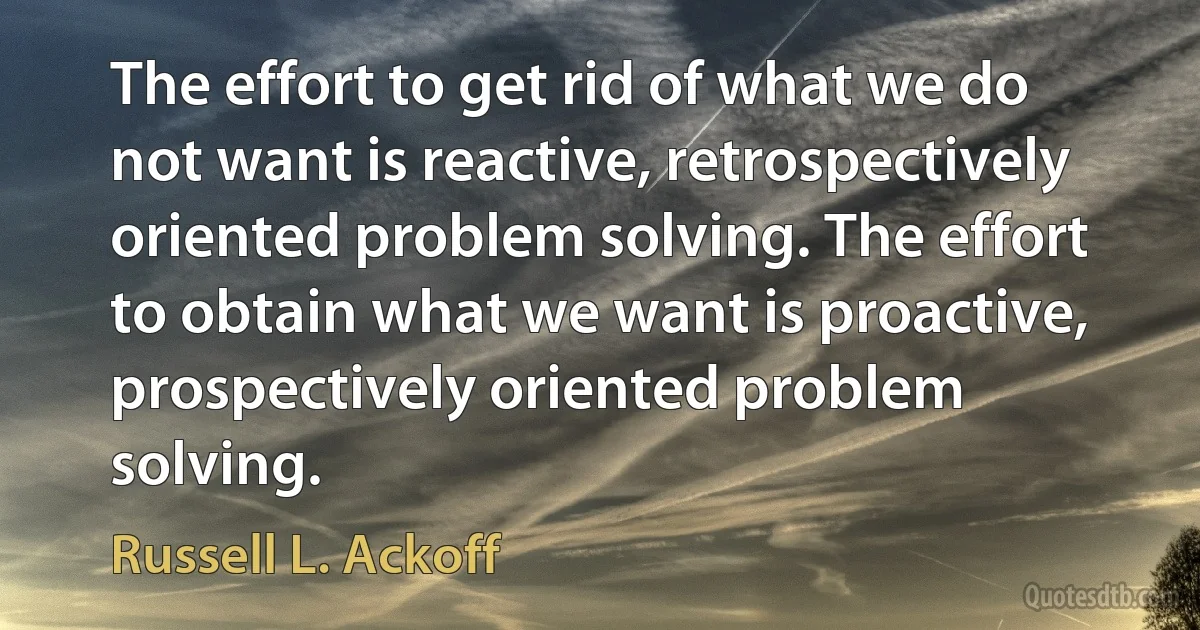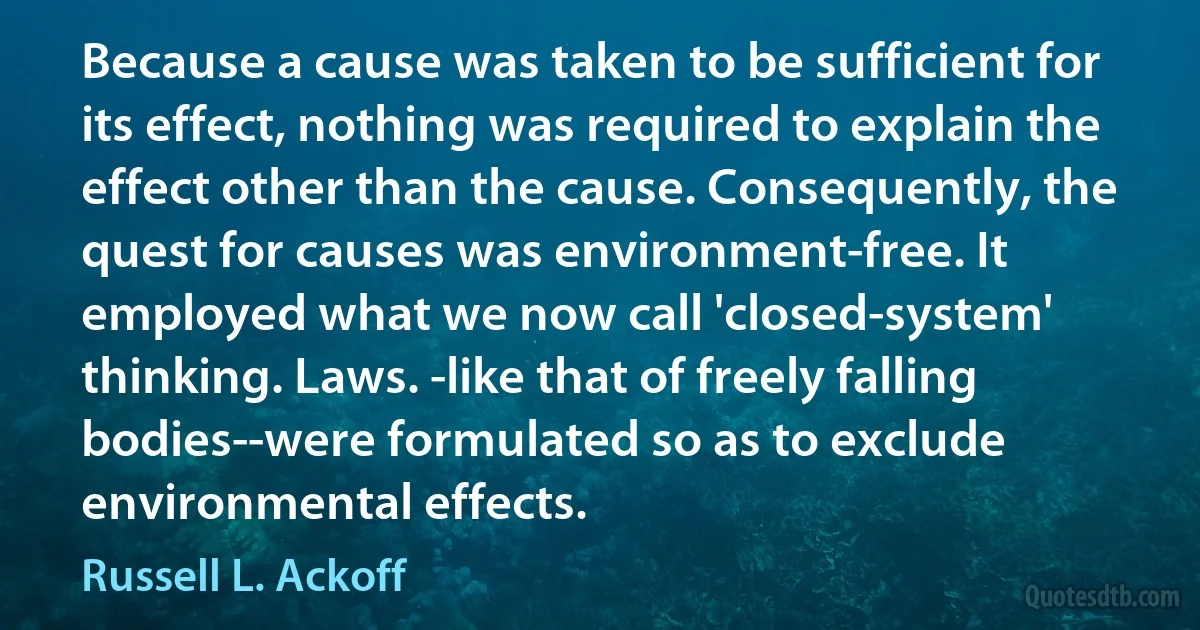Russell L. Ackoff quotes - page 3
Doing philosophy was an opportunity to learn something new. I expected this to be an adjunct to my practice of architecture. But it turned out the other way. It turned out that the philosophy of science gave me the opportunity to design social systems, and I was more interested in people-oriented systems than in buildings. They were both design, but different kinds of design. I like creating things.

Russell L. Ackoff
We have also come to realize that no problem ever exists in complete isolation. Every problem interacts with other problems and is therefore part of a set of interrelated problems, a system of problems I choose to call such a system a mess ... Furthermore solutions to most problems produce other problems... a financial problem, a maintenance problem, and conflict among family members for its use.

Russell L. Ackoff
In the last two decades we have witnessed the emergence of the "system" as a key concept in scientific research. Systems, of course, have been studied for centuries, but something new has been added... The tendency to study systems as an entity rather than as a conglomeration of parts is consistent with the tendency in contemporary science no longer to isolate phenomena in narrowly confined contexts, but rather to open interactions for examination and to examine larger and larger slices of nature. Under the banner of systems research (and its many synonyms) we have also witnessed a convergence of many more specialized contemporary scientific developments... These research pursuits and many others are being interwoven into a cooperative research effort involving an ever-widening spectrum of scientific and engineering disciplines. We are participating in what is probably the most comprehensive effort to attain a synthesis of scientific knowledge yet made.

Russell L. Ackoff
Systems science and technology constitute one aspect of systems thinking, but the humanities and arts make up the other. The fact that design plays such a large part in the systemic treatment of problems makes it apparent that art has a major role in it as well. Ethics and aesthetics are integral aspects of evaluating systems... the systems approach involves the pursuit of truth (science) and its effective use (technology), plenty (economics), the good (ethics and morality), and beauty and fun (aesthetics). To compare systems methodology with that of any of the so-called ‘hard' disciplines-for example, physics-is to misunderstand the nature of systems. The worry is not that the systems approach is not scientific in the sense which physics or chemistry or biology is, but that some try to make it scientific in that sense. To the extent they succeed, they destroy it.

Russell L. Ackoff
Analysis of a system reveals its structure and how it works. It provides the knowledge required to make it work efficiently and to repair it when it stops working. Its product is know-how, knowledge, not understanding. To enable a system to perform effectively we must understand it-we must be able to explain its behavior-and this requires being aware of its functions in the larger systems of which it is a part.

Russell L. Ackoff
Recently I asked three corporate executives what decisions they had made in the last year that they would not have made were it not for their corporate plans. All had difficulty in identifying one such decision. Since each of their plans were marked 'secret' or 'confidential', I asked them how their competitors might benefit from the possession of their plans. Each answered with embarrassment that their competitors would not benefit. Yet these executives were strong advocates of corporate planning.

Russell L. Ackoff
The measure of information to be developed here will also be related to freedom of choice; that is, it will be a function of the probabilities of choice associated with the alternative courses of action... The measure developed here is a function of m, the number of alternative potential courses of action.

Russell L. Ackoff
Man seeks objectives that enable him to convert the attainment of every goal into a means for the attainment of a new and more desirable goal. The ultimate objective in such a sequence cannot be obtainable; otherwise its attainment would put an end to the process. An end that satisfies these conditions is an ideal...
Thus the formulation and pursuit of ideals is a means by which to put meaning and significance into his life and into the history of which he is part.

Russell L. Ackoff
The only problems that have simple solutions are simple problems. The only managers that have simple problems have simple minds. Problems that arise in organisations are almost always the product of interactions of parts, never the action of a single part. Complex problems do not have simple solutions.

Russell L. Ackoff


